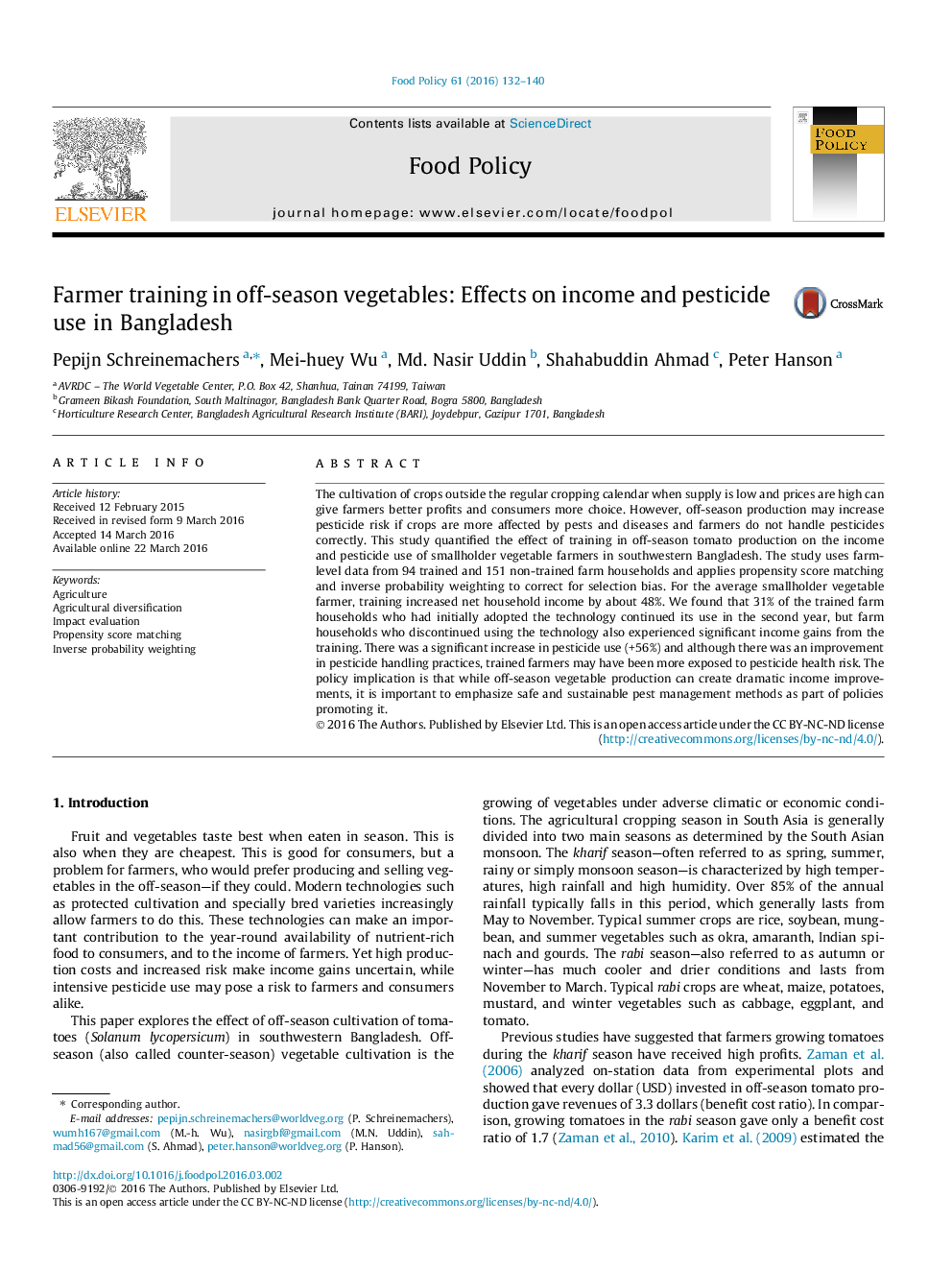| Article ID | Journal | Published Year | Pages | File Type |
|---|---|---|---|---|
| 5070235 | Food Policy | 2016 | 9 Pages |
â¢We assess the impact of training in off-season tomato production.â¢Propensity score estimators were used to correct for program placement bias.â¢Income in the off-season increased by 48%, but pesticide use also increased by 56%.â¢Safe pest management needs emphasis to avoid adverse health outcomes.
The cultivation of crops outside the regular cropping calendar when supply is low and prices are high can give farmers better profits and consumers more choice. However, off-season production may increase pesticide risk if crops are more affected by pests and diseases and farmers do not handle pesticides correctly. This study quantified the effect of training in off-season tomato production on the income and pesticide use of smallholder vegetable farmers in southwestern Bangladesh. The study uses farm-level data from 94 trained and 151 non-trained farm households and applies propensity score matching and inverse probability weighting to correct for selection bias. For the average smallholder vegetable farmer, training increased net household income by about 48%. We found that 31% of the trained farm households who had initially adopted the technology continued its use in the second year, but farm households who discontinued using the technology also experienced significant income gains from the training. There was a significant increase in pesticide use (+56%) and although there was an improvement in pesticide handling practices, trained farmers may have been more exposed to pesticide health risk. The policy implication is that while off-season vegetable production can create dramatic income improvements, it is important to emphasize safe and sustainable pest management methods as part of policies promoting it.
